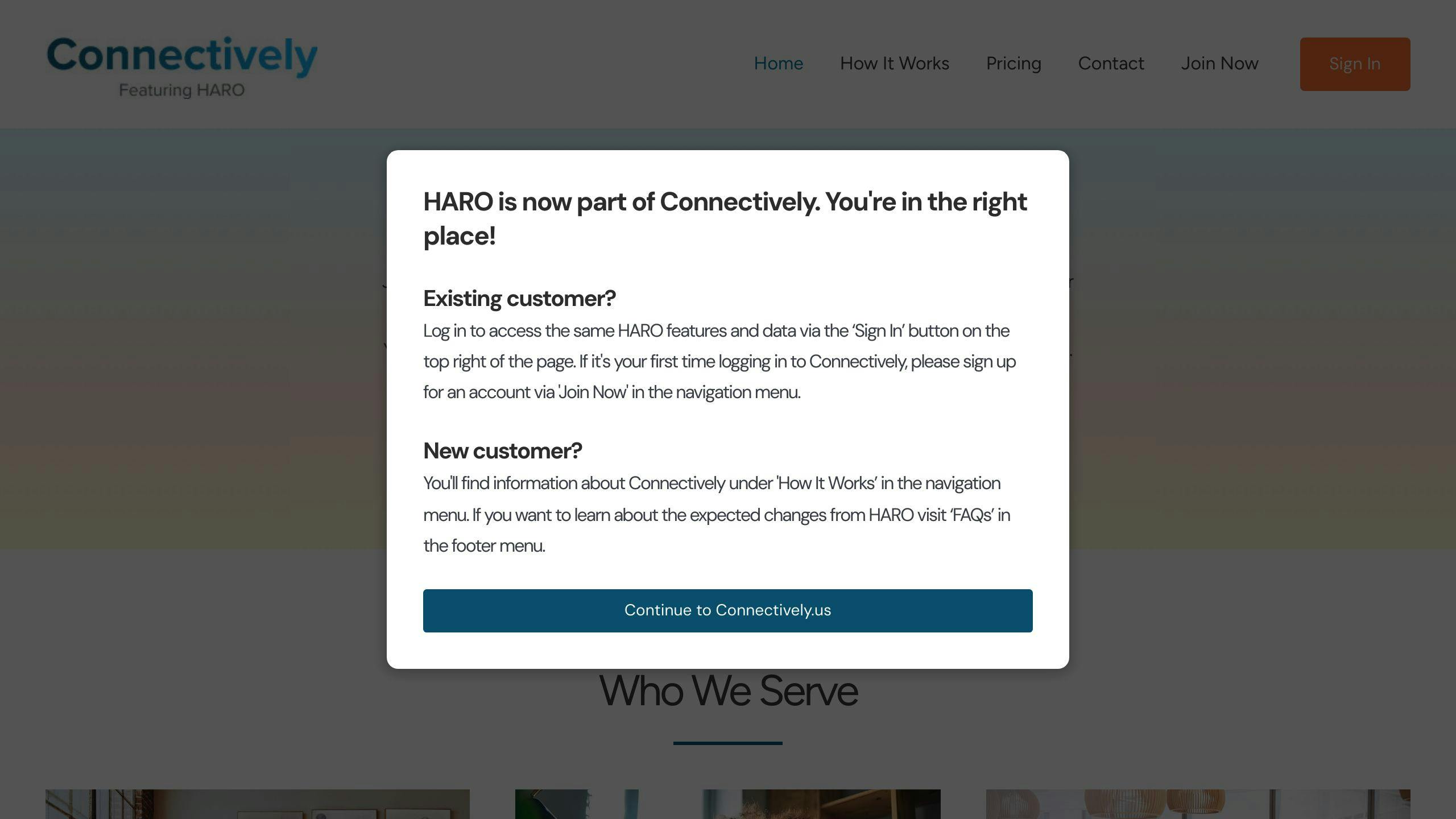To boost your startup's online visibility and drive more conversions, optimize your landing page for search engines with these 7 essential SEO tips:
-
Conduct Keyword Research: Identify relevant keywords your target audience uses to find products like yours. Utilize keyword research tools to find high-volume, low-competition keywords to incorporate into your landing page.
-
Optimize Technical Elements: Ensure your landing page is crawlable, indexable, mobile-friendly, and loads quickly. This improves user experience and search engine rankings.
-
Create High-Quality Content: Craft engaging, keyword-rich content that resonates with your audience and helps search engines understand your page's purpose.
-
Build High-Quality Backlinks: Earn backlinks from trusted sources through guest blogging, HARO, and resource pages to boost your page's authority and rankings.
-
Ensure Mobile-Friendliness and Fast Load Times: Optimize your landing page for mobile devices with a responsive design and fast load times to improve user experience and search engine rankings.
-
Monitor and Analyze Performance: Track key metrics like page views, conversion rates, and bounce rates to identify areas for improvement and increase conversions.
-
Stay Up-to-Date with SEO Trends: Follow industry leaders, attend events, and experiment with new strategies to keep your landing page optimized and competitive.
By implementing these SEO tips, you can improve your startup's landing page visibility, drive more organic traffic, and boost conversions.
1. Conduct Keyword Research to Guide Your SEO Strategy
Keyword research is a crucial step in optimizing your startup's landing page for search engines. It helps you understand what keywords and phrases your target audience is using to search for products or services like yours.
Why Keyword Research Matters
-
Increases page visibility
-
Drives more traffic
-
Boosts conversions
How to Conduct Keyword Research
1. Brainstorm Relevant Keywords: Make a list of keywords and phrases related to your product or service.
2. Use Keyword Research Tools: Utilize tools like Google Keyword Planner, SEMrush, Ahrefs, AnswerThePublic, or Ubersuggest to find low-competition, high-volume search terms.
3. Analyze Competitors' Keywords: Identify gaps in the market that you can capitalize on.
Prioritizing Keywords
| Criteria | Description |
|---|---|
| Relevance | How closely the keyword relates to your product or service |
| Search Volume | The number of people searching for the keyword |
| Competition | The number of websites competing for the keyword |
Incorporating Keywords into Your Landing Page
-
Use target keywords in:
-
Title tag
-
Meta description
-
Header tags
-
Image file names
-
Copy
-
-
Avoid keyword stuffing, as this can lead to penalties from search engines.
By conducting thorough keyword research and optimizing your landing page accordingly, you can improve your search engine rankings and drive more traffic to your page.
2. Optimize Your Landing Page's Technical Elements
Optimizing your landing page's technical elements is crucial for search engine optimization (SEO) and user experience. This involves ensuring that your page is crawlable, indexable, and loads quickly.
Crawlability and Indexability
Search engines like Google use crawlers to discover and index new content. To ensure that your landing page is crawlable and indexable:
| Action | Description |
|---|---|
| Use clear and descriptive URL structure | Helps search engines understand your page's content |
| Organize content with header tags (H1, H2, H3, etc.) | Structures your content for search engines and users |
| Use alt tags for images | Provides context for search engines and users with visual impairments |
| Internal link to other relevant pages on your website | Helps search engines understand your website's structure |
Page Speed Optimization
Page speed is critical for user experience and SEO. A slow-loading page can lead to high bounce rates and negatively impact your search engine rankings. To optimize your page speed:
| Action | Description |
|---|---|
| Use a content delivery network (CDN) | Reduces latency and improves page load times |
| Compress images and files | Reduces file size and improves page load times |
| Minify and compress CSS, JavaScript, and HTML files | Reduces file size and improves page load times |
| Leverage browser caching | Improves page load times by storing frequently-used resources |
Mobile-Friendliness
With most users accessing the web through mobile devices, it's essential to ensure that your landing page is mobile-friendly. A mobile-friendly page:
| Characteristic | Description |
|---|---|
| Has a responsive design | Adapts to different screen sizes and devices |
| Loads quickly on mobile devices | Improves user experience and reduces bounce rates |
| Has easy-to-use navigation and buttons | Improves user experience and increases conversions |
By optimizing your landing page's technical elements, you can improve your search engine rankings, increase user engagement, and drive more conversions.
3. Create High-Quality, Keyword-Rich Content
Creating high-quality, keyword-rich content is crucial for startup landing pages. This type of content resonates with your target audience and helps search engines understand the purpose and relevance of your page.
Conduct Keyword Research
Before creating your content, conduct thorough keyword research to identify relevant and high-volume search terms. This helps you understand your target audience's search intent and create content that meets their needs.
Keyword Research Tools
| Tool | Description |
|---|---|
| Google Keyword Planner | A free tool that provides keyword suggestions and search volume data |
| Ahrefs | A paid tool that offers comprehensive keyword research and analysis features |
| SEMrush | A paid tool that provides keyword research, competitor analysis, and technical SEO audits |
Optimize Your Content
Once you have identified your target keywords, incorporate them strategically into your content. This includes:
Content Elements
| Element | Description |
|---|---|
| Title Tag | Include your primary keyword in your title tag to improve search engine rankings |
| Meta Description | Write a compelling and keyword-rich meta description to entice users to click on your page |
| Header Tags | Use header tags (H1, H2, H3, etc.) to structure your content and highlight important keywords |
| Body Content | Use relevant keywords in your body content, but avoid keyword stuffing (1-2% keyword density is recommended) |
| Image File Names and Alt Text | Use descriptive file names and alt text that include your target keywords |
By creating high-quality, keyword-rich content, you can improve your search engine rankings, drive more organic traffic, and increase conversions on your startup landing page.
4. Build High-Quality Backlinks to Your Landing Page
Building high-quality backlinks to your landing page is crucial for improving your search engine rankings and driving more organic traffic. Backlinks from trusted sources act as a vote of confidence, signaling to search engines that your content is valuable and relevant.
Guest Blogging
Guest blogging is an effective way to build high-quality backlinks. Identify relevant websites in your niche and offer to write a guest post in exchange for a link back to your landing page. Ensure that your guest post provides value to the host website's audience and includes a natural link to your content.
HARO (Help a Reporter Out)

HARO is a platform that connects journalists and bloggers with expert sources. Sign up as a source and respond to relevant queries, providing valuable insights and information. If your input is selected, you'll receive a backlink from a reputable website.
Resource Pages
Create a resource page on your website that links to other high-quality and relevant content. Reach out to the owners of those websites and ask them to link back to your resource page. This strategy can help you build a network of high-quality backlinks.
Backlink Building Strategies
| Strategy | Description |
|---|---|
| Guest Blogging | Write guest posts for other websites in exchange for backlinks |
| HARO | Respond to journalist queries and provide valuable insights to receive backlinks |
| Resource Pages | Create a resource page that links to other high-quality content and ask for backlinks |
Remember, building high-quality backlinks takes time and effort. Focus on creating valuable content and building relationships with other websites in your niche. Avoid using manipulative tactics or buying backlinks, as they can harm your search engine rankings.
sbb-itb-bf47c9b
5. Ensure Your Landing Page is Mobile-Friendly and Fast
A mobile-friendly landing page is crucial in today's digital landscape. With most users accessing the internet through mobile devices, search engines like Google prioritize mobile-friendly websites in their search results.
Why Mobile-Friendliness Matters
A mobile-friendly landing page provides a better user experience, increases engagement, and drives more conversions. If your landing page is not optimized for mobile, you may be missing out on potential customers.
Optimizing for Mobile
To optimize your landing page for mobile, ensure that it:
| Criteria | Description |
|---|---|
| Has a responsive design | Adjusts to fit the screen size of the device being used |
| Loads quickly | Fast load times improve user experience and reduce bounce rates |
| Has easy-to-use forms and CTAs | Easy-to-use forms and CTAs improve conversion rates |
Tools to Test Mobile-Friendliness
Use tools like Google's Mobile-Friendly Test tool to test your landing page's mobile-friendliness and identify areas for improvement.
By ensuring that your landing page is mobile-friendly and fast, you can improve user experience, increase engagement, and drive more conversions. Don't miss out on potential customers – optimize your landing page for mobile today!
6. Monitor and Analyze Your Landing Page's Performance
To improve your landing page, you need to track its performance. This helps you understand how well it's converting and where you can make improvements.
Track These Key Metrics
Start by tracking these key metrics:
| Metric | Description |
|---|---|
| Page Views | The number of times your landing page is viewed |
| Conversion Rate | The percentage of visitors who complete a desired action (e.g., fill out a form, make a purchase) |
| Bounce Rate | The percentage of visitors who leave your page without taking any action |
| Sessions by Source | The number of visitors coming from different sources (e.g., organic search, paid ads, social media) |
| Session Duration | The average time visitors spend on your landing page |
Tools to Track Performance
Use tools like Google Analytics, Google Search Console, and MarketingCloudFX to track your landing page's performance. These tools provide valuable insights into how visitors interact with your page, allowing you to make data-driven decisions to optimize and improve your landing page.
By regularly monitoring and analyzing your landing page's performance, you can identify areas for improvement, increase conversions, and drive more revenue for your startup.
7. Stay Up-to-Date with the Latest SEO Trends and Best Practices
To ensure your landing page remains optimized and competitive, it's crucial to stay informed about the latest SEO trends and best practices. Search engines like Google continuously update their algorithms, and new SEO strategies emerge.
Stay Informed
Follow industry leaders, SEO experts, and reputable blogs to stay updated on the latest developments and trends in SEO. This will help you stay ahead of the curve and make informed decisions to optimize your landing page.
Attend SEO Events
Attend SEO conferences, webinars, and workshops to learn from industry experts and network with like-minded professionals. These events provide valuable insights into the latest SEO strategies and best practices.
Experiment and Analyze
Continuously experiment with new SEO strategies and analyze their impact on your landing page's performance. This will help you identify what works best for your startup and make informed decisions to optimize your landing page.
SEO Resources
| Resource | Description |
|---|---|
| Industry leaders and blogs | Stay updated on the latest SEO trends and best practices |
| SEO conferences and webinars | Learn from industry experts and network with professionals |
| Experimentation and analysis | Identify what works best for your startup and optimize your landing page |
By staying up-to-date with the latest SEO trends and best practices, you can ensure your landing page remains optimized, competitive, and drives more conversions for your startup.
Conclusion
Optimizing your startup's landing page for SEO is crucial to driving more conversions and increasing your online visibility. By following the 7 essential SEO tips outlined in this article, you can improve your landing page's search engine ranking, drive more organic traffic, and ultimately boost your startup's growth.
Key Takeaways
To ensure your landing page remains competitive and optimized, remember to:
-
Stay up-to-date with the latest SEO trends and best practices
-
Experiment with new strategies and analyze their impact on your landing page's performance
-
Continuously optimize your landing page to achieve maximum results
By doing so, you can ensure your landing page drives more conversions for your startup. Don't miss out on potential customers – optimize your landing page for SEO today!
FAQs
How to SEO Optimize a Landing Page?
To optimize a landing page for SEO, follow these essential steps:
| Step | Description |
|---|---|
| 1. Keyword Research | Conduct thorough keyword research to identify relevant keywords. |
| 2. High-Quality Content | Create engaging, informative, and relevant content that resonates with your target audience. |
| 3. On-Page SEO | Optimize title tags, meta descriptions, headings, and image alt tags for search engines. |
| 4. Mobile Friendliness | Ensure your landing page is responsive and provides a seamless user experience across devices. |
| 5. Page Speed Optimization | Optimize your page's loading speed to improve user experience and search engine ranking. |
| 6. Internal and External Links | Strategically use internal and external links to enhance user experience and search engine ranking. |
| 7. Backlinks Strategy | Develop a backlinks strategy to increase your page's authority and ranking. |
| 8. Schema Markup | Use schema markup to provide search engines with additional context about your page's content. |
How to Optimize a Landing Page for SEO?
To optimize a landing page for SEO, follow these best practices:
| Best Practice | Description |
|---|---|
| 1. Custom URL | Publish your landing page to a custom URL that reflects your brand and content. |
| 2. Keyword Inclusion | Incorporate your keywords naturally throughout your content, meta tags, and headings. |
| 3. High-Quality Content | Focus on creating high-quality, engaging content that resonates with your audience. |
| 4. Backlinks | Develop a backlinks strategy to increase your page's authority and ranking. |
| 5. Page Speed | Optimize your page's loading speed to improve user experience and search engine ranking. |
| 6. Shareable Content | Encourage sharing and engagement by creating shareable, informative, and relevant content. |
By following these SEO tips and best practices, you can optimize your landing page for search engines, drive more organic traffic, and increase conversions.



